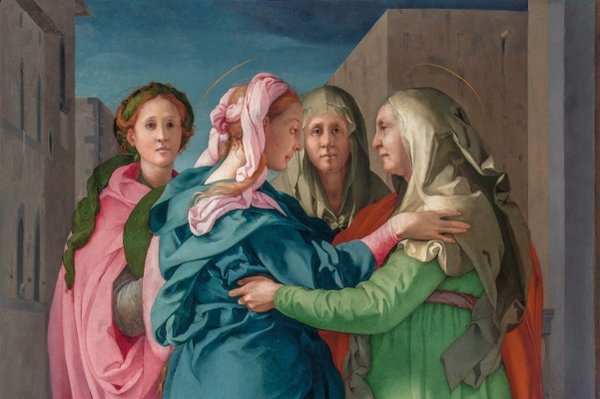The Magnificat (Lk 1: 46-55) is a canticle that reveals in filigree the spirituality of the biblical anawim, that is, of those faithful who not only recognize themselves as "poor" in the detachment from all idolatry of riches and power, but also in the profound humility of a heart emptied of the temptation to pride and open to the bursting in of the divine saving grace...
"He has shown strength... he has scattered the proud... he has put down the mighty... he has exalted those of low degree... he has filled the hungry with good things... the rich he has sent empty away... he has helped... Israel".
In these seven divine acts, the "style" that inspires the behaviour of the Lord of history stands out: he takes the part of the lowly. His plan is one that is often hidden beneath the opaque context of human events that see "the proud, the mighty and the rich" triumph.
Yet his secret strength is destined in the end to be revealed, to show who God's true favourites are: "Those who fear him", faithful to his words: "those of low degree", "the hungry", "his servant Israel"; in other words, the community of the People of God who, like Mary, consist of people who are "poor", pure and simple of heart. It is that "little flock" which is told not to fear, for the Lord has been pleased to give it his Kingdom (cf. Lk 12: 32). And this Canticle invites us to join the tiny flock and the true members of the People of God in purity and simplicity of heart, in God's love.
Let us therefore accept the invitation that St Ambrose, the great Doctor of the Church, addresses to us in his commentary on the text of the Magnificat: "May Mary's soul be in each one to magnify the Lord, may Mary's spirit be in each one to rejoice in God; if, according to the flesh, the Mother of Christ is one alone, according to the faith all souls bring forth Christ; each, in fact, welcomes the Word of God within.... Mary's soul magnifies the Lord and her spirit rejoices in God because, consecrated in soul and spirit to the Father and to the Son, she adores with devout affection one God, from whom come all things and only one Lord, by virtue of whom all things exist" (Exposition of the Holy Gospel according to Saint Luke, 2: 26-27).
In this marvellous commentary on the Magnificat by St Ambrose, I am always especially moved by the surprising words: "If, according to the flesh the Mother of Christ is one alone, according to the faith all souls bring forth Christ: indeed, each one intimately welcomes the Word of God". Thus, interpreting our Lady's very words, the Holy Doctor invites us to ensure that the Lord can find a dwelling place in our own souls and lives. Not only must we carry him in our hearts, but we must bring him to the world, so that we too can bring forth Christ for our epoch. Let us pray the Lord to help us praise him with Mary's spirit and soul, and to bring Christ back to our world.
Benedict XVI, General audience, February 15, 2006
Life of Mary (VI): Visitation to Saint Elizabeth
The Visitation: Magisterium, Saints, Poets
